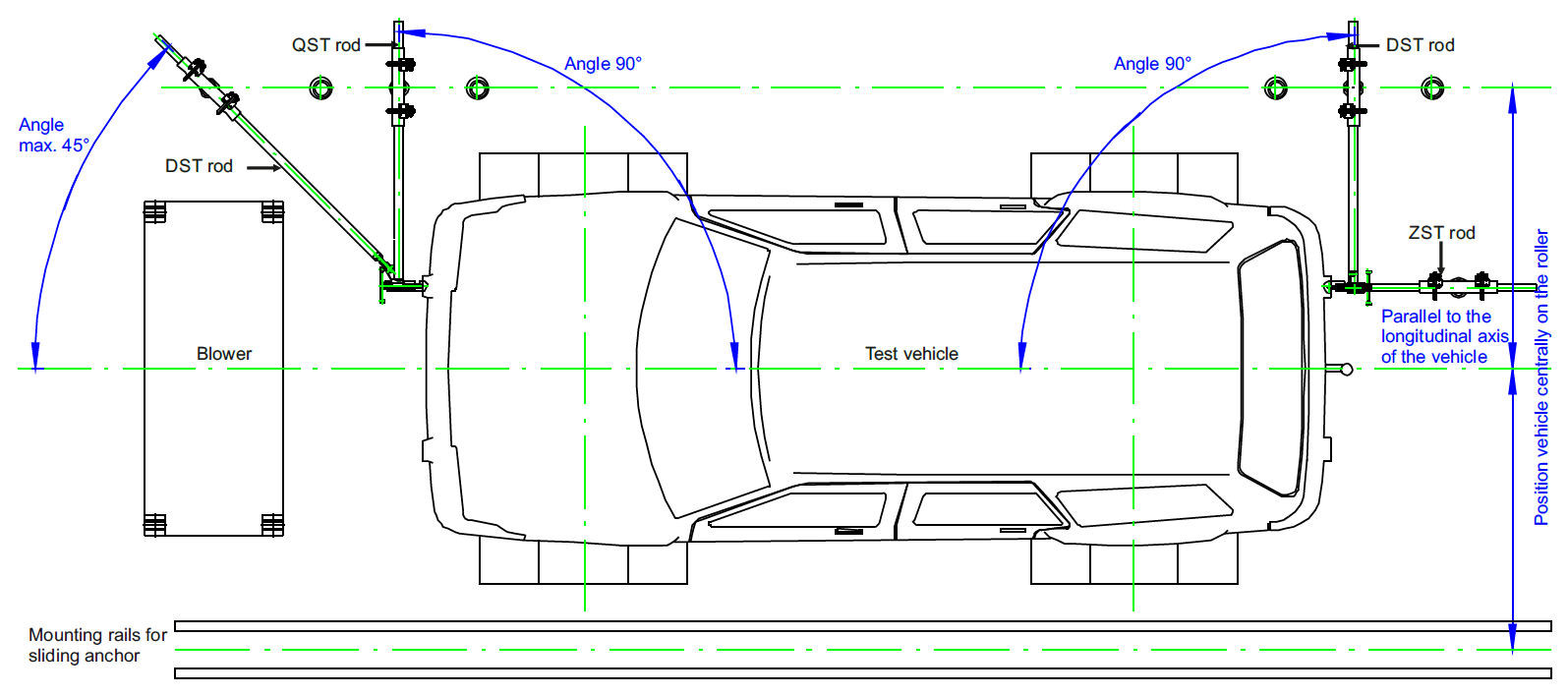Functionality of the hook fixation
The hook fixation is suitable for standard passenger cars, test vehicles and prototypes up to 2.5 t. To fix the vehicle by means of hooks, two fixing rods each are attached to the front and rear of the vehicle. These are clamped in plug-in anchors or sliding anchors and are thus connected to the test stand floor.
The hook fixation is available in three variants
Fixing rods
The lateral rod (QST) and the tractive rod have a hook, the trailer coupling rod (AST) has a mounting head. The hook or mounting head is hooked into the tow eye or placed on the trailer coupling in a few simple steps. The diagonal rod (DST) is firmly connected to the first rod and serves as lateral stabilisation.
The lateral rod (QST) runs at right angles to the longitudinal axis of the vehicle. Ideal if no space behind or in front of the vehicle is available.
The tractive rod (ZST) is mounted parallel to the longitudinal axis of the vehicle. The tractive rod absorbs longitudinal forces best.
The trailer coupling rod (AST) is available for fixing the rear of the vehicle. A receptacle unit is plugged onto the hitch.
Clamping

Technical documentations and operating instructions
Further informations and downloads on this topic can be found in the section Operating instructions.






